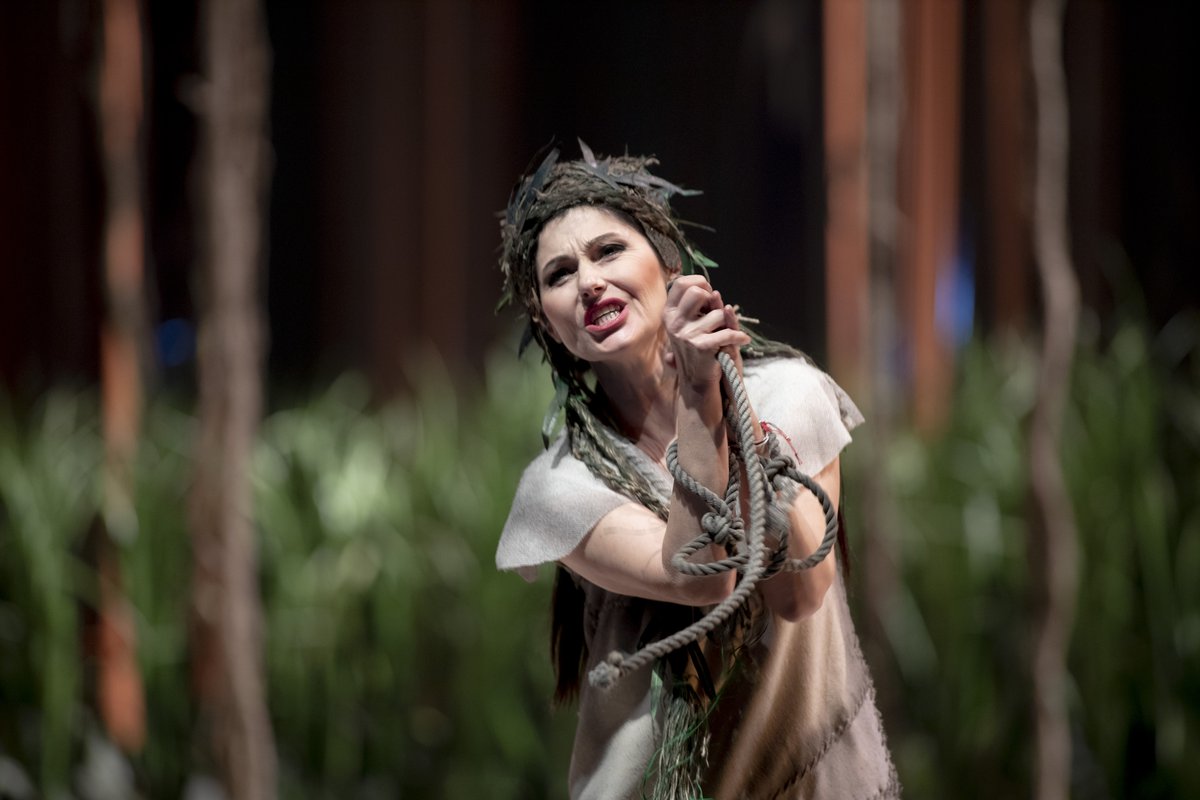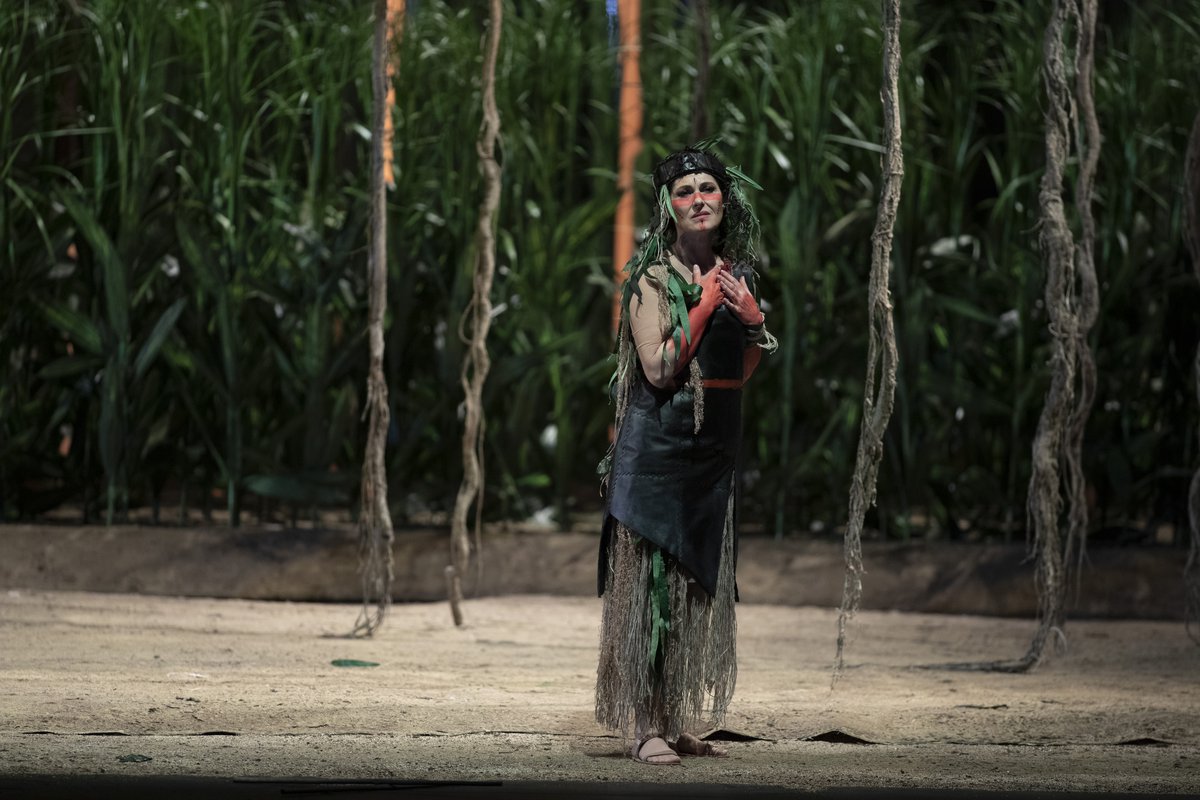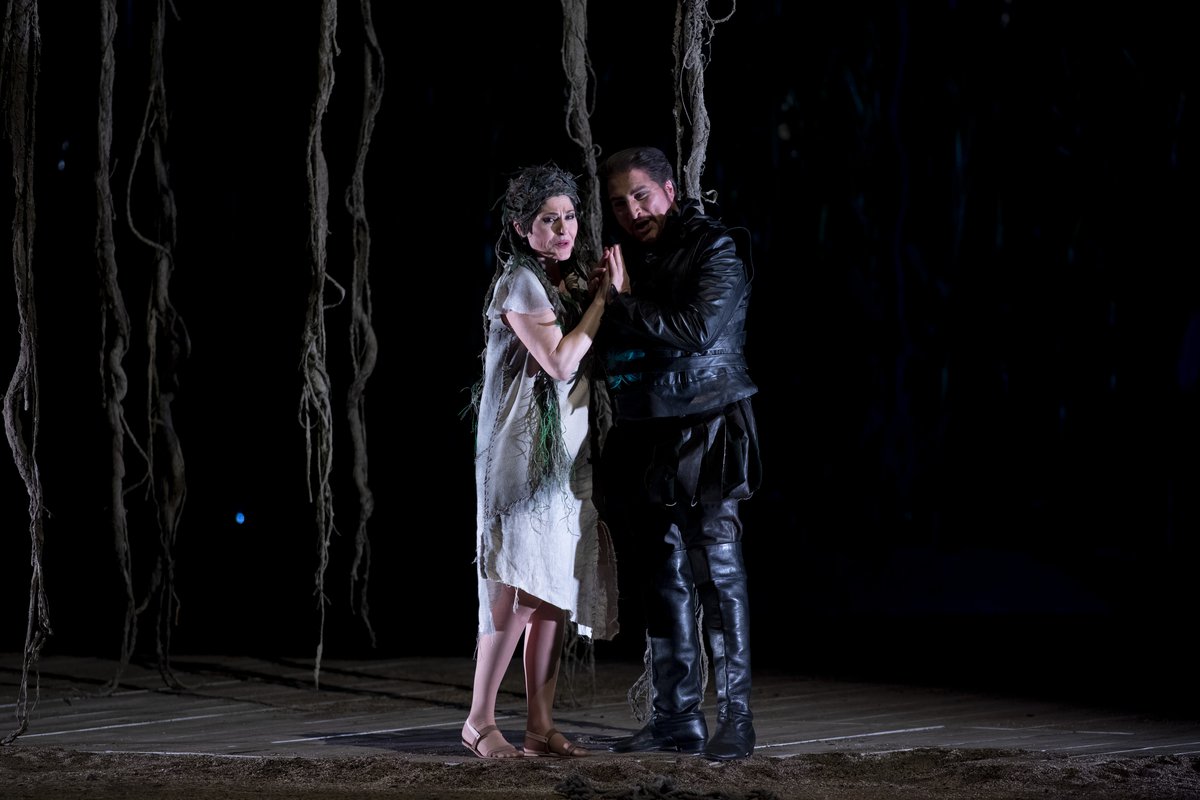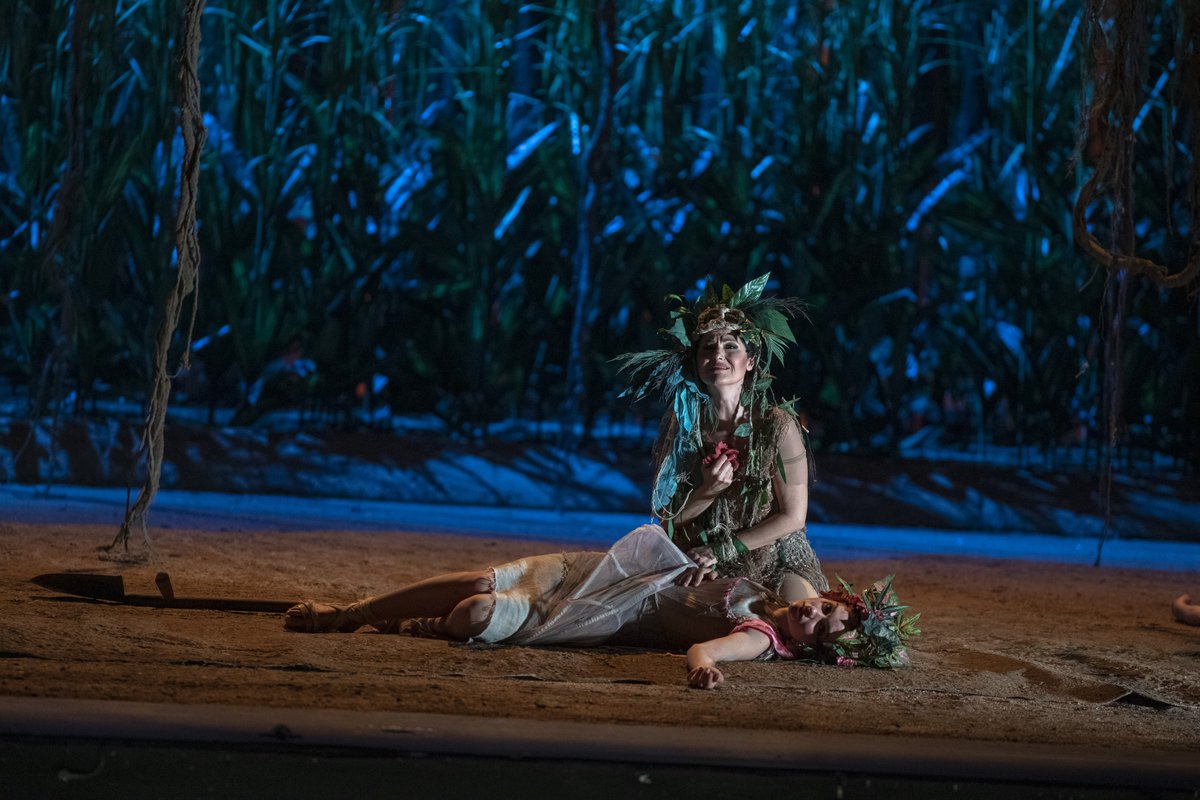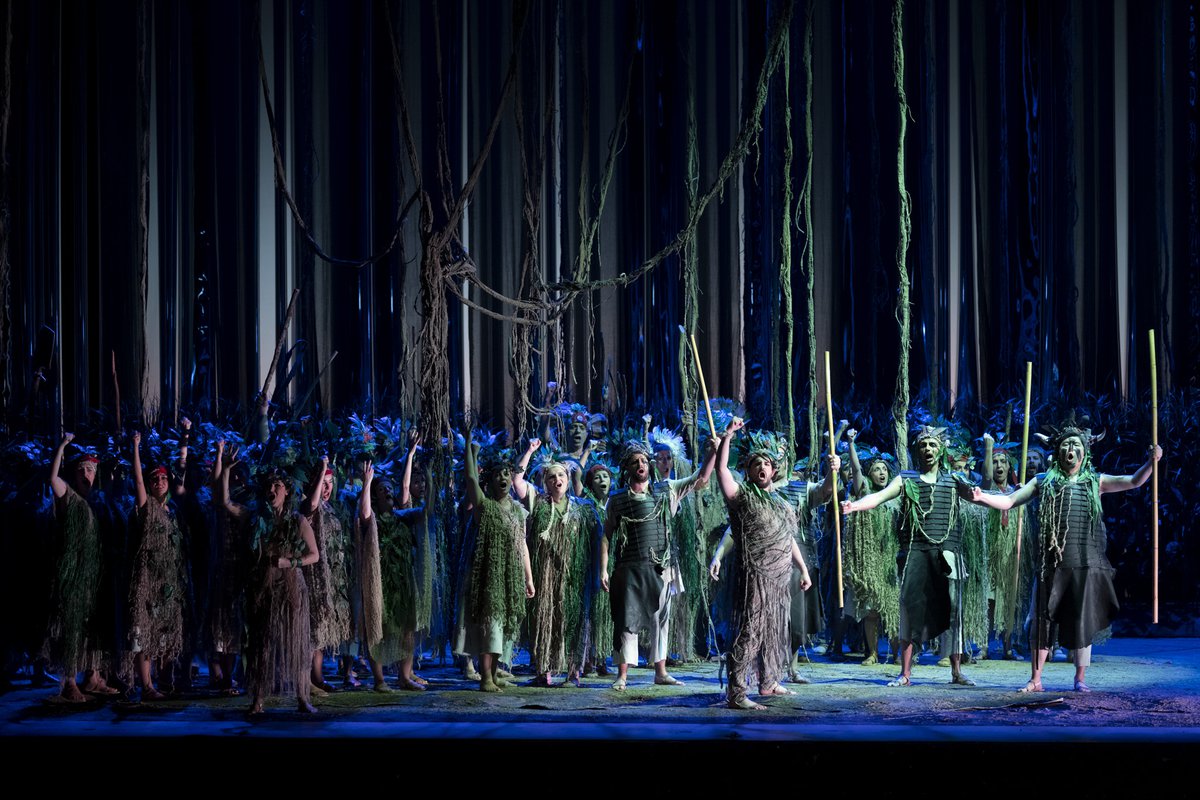Opera
“We’ve now found Gomes’ best opera, which therefore is also, most likely, Brazil’s best”.
Composer: Antônio Carlos Gomes | Orchestra: Orchestra and choir from the Cagliari Opera House | Musical director: John Neschling | Stage director: Davide Garattini Raimondi | Cast: ILARA Svetla Vassileva; THE COUNTESS OF BOISSY Elisa Balbo; AMERICO Massimiliano Pisapia; IBERE Andrea Borghini; GIANFERA Daniele Terenzi; COUNT RODRIGO / GOITACA Dongho Kim | Video director: Tiziano Mancini | Staging: Cagliari Opera House | Produced by: Dynamic Srl.
John Neschling
Musical director
Conductor of some of Europe’s most important orchestras
Born in Brazil in 1947, he comes from a family of Austrian Jews. He has conducted the Wiener Symphonic, the London Symphony Orchestra, the Zürich Tonhalle Orchestra, the Warsaw Philharmonic Symphony Orchestra, the Pittsburgh Symphony Orchestra, the Santa Cecilia National Academy’s Orchestra in Rome, the Residentie Orkest Den Haag and the BBC Symphony Orchestra in London. As operatic conductor, he has worked all over the world with the Wiener Staatsoper, the Deutsche Opera in Berlin, the San Carlo di Napoli Theater, the Arena di Verona, the Opernhaus in Zürich and the Washington Opera. In January 2013, he was named Artistic Director of the Sao Paulo Municipal Theater, where he worked until September 2016. Since then, he has conducted the St. Petersburg Philharmonic Orchestra, the Maggio Musicale, La Fenice (Venice), the Bologna Comunale, the Giuseppe Verdi Symphonic Orchestra in Milan, the Cagliari Opera House and the Royal Philharmonic Orchestra in Liège. He has been a member of the Brazilian Academy of Music since 2003.
Antônio Carlos Gomes
Composer
A Brazilian who triumphed in Italy
Born in Brazil in 1836, he is the most well-known classical composer of opera worldwide. He studied at the Río de Janeiro Conservatory of Music and then composed his first operas A Noite do Castelo (1861) and Joana de Flandes (1863), pieces that won him a scholarship to carry out further studies in Italy. While in Milan, he soon became famous in Europe‘s artistic circles, winning recognition for his most well-known opera, O Guarani (1870), which was premiered at the La Scala Theater. Financial problems caused him to return to Brazil, where he took over running the Belém Conservatory of Music and where he died in 1896. Some of his other operas include Fosca (1873), Salvador Rosa (1874), Maria Tudor (1879), Lo Schiavo (1889) and Condor (1891), as well as the symphonic poem Colombo (1892).
-This production is quite literally an operatic milestone: the first performance since the nineteenth century of an opera that has been described as brilliant by critics, as well as being compared to the work of Giuseppe Verdi and, for years, cast into oblivion. It is a treasure to both discover and enjoy.
-It is an opportunity to find out more about the work of Brazilian composer Antônio Carlos Gomes, who spent the majority of his career in Italy and who Verdi himself called ‘a genius’, although his pieces are not well-known to the public. This version by the Cagliari Opera House, with its stunning visuals and outstanding performers, is a good opportunity to test the waters of this world and of Gomes‘ musical legacy.
The African diaspora in Brazil: According to the Palmares Foundation, a public institution that works on preserving the values associated with black influence on Brazilian culture, the African diaspora is the name given to the forced emigration of people from the African continent during the transatlantic slave trade. Of the 11 million people who came to the American continent, 5 million arrived in Brazil. Once settled, these people - from what are today Angola, Senegal, Nigeria, Mozambique and other countries - formed communities that created new ways of life, leaving their history, traditions, religion and identity behind and, at the same time, creating new traditions that are now part of Brazil’s culture. That is why the Lo Schiavo opera is a crucial part of this country’s cultural heritage.
COLABORA


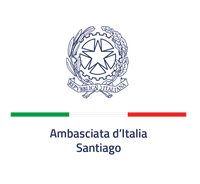

Lo Schiavo (El esclavo)
By Antônio Carlos Gomes | Musical director: John Neschling | Stage director: Davide Garattini Raimondi
- Brazil
- Italy
- Italian with Spanish subtitles
- 138 minutes
- Todo público
The Cagliari Opera House revives an operatic jewel that has been forgotten for almost a century.
At the end of the nineteenth century, Brazilian composer Antônio Carlos Gomes travelled to Italy to learn more about the style and rules of opera. When he returned to his country, this knowledge paid off: he was described as Brazil’s most famous living composer. Nevertheless, Gomes felt that his work was worthless if did not include a component connected to current social issues. That is why he wrote Lo Schiavo (The Slave) in 1889, a year after slavery was abolished in Brazil. Of course, the play was not completely free from controversy and, although it was very successful (and acclaimed) in his country, it seemed to fade into oblivion in the rest of the world ... until now.
This version of Lo Schiavo, performed by the Cagliari Opera House, is a record of the first performance of this opera in modern times (2019), revealing the extravagance of its melodic creativity, its clever construction and Gomes‘ technical command of theatrical elements. It is a tribute - that comes not a minute too late - to “the most popular piece in all of Brazil’s repertoire. It is the most-performed and perhaps the most well-loved“, says its musical director, Brazilian John Neschling.
“We’ve now found Gomes’ best opera, which therefore is also, most likely, Brazil’s best”.
Lo Schiavo (El esclavo)
By Antônio Carlos Gomes | Musical director: John Neschling | Stage director: Davide Garattini Raimondi
- Brazil
- Italy
- Italian with Spanish subtitles
- 138 minutes
- Todo público
The Cagliari Opera House revives an operatic jewel that has been forgotten for almost a century.
At the end of the nineteenth century, Brazilian composer Antônio Carlos Gomes travelled to Italy to learn more about the style and rules of opera. When he returned to his country, this knowledge paid off: he was described as Brazil’s most famous living composer. Nevertheless, Gomes felt that his work was worthless if did not include a component connected to current social issues. That is why he wrote Lo Schiavo (The Slave) in 1889, a year after slavery was abolished in Brazil. Of course, the play was not completely free from controversy and, although it was very successful (and acclaimed) in his country, it seemed to fade into oblivion in the rest of the world ... until now.
This version of Lo Schiavo, performed by the Cagliari Opera House, is a record of the first performance of this opera in modern times (2019), revealing the extravagance of its melodic creativity, its clever construction and Gomes‘ technical command of theatrical elements. It is a tribute - that comes not a minute too late - to “the most popular piece in all of Brazil’s repertoire. It is the most-performed and perhaps the most well-loved“, says its musical director, Brazilian John Neschling.
“We’ve now found Gomes’ best opera, which therefore is also, most likely, Brazil’s best”.
Composer: Antônio Carlos Gomes | Orchestra: Orchestra and choir from the Cagliari Opera House | Musical director: John Neschling | Stage director: Davide Garattini Raimondi | Cast: ILARA Svetla Vassileva; THE COUNTESS OF BOISSY Elisa Balbo; AMERICO Massimiliano Pisapia; IBERE Andrea Borghini; GIANFERA Daniele Terenzi; COUNT RODRIGO / GOITACA Dongho Kim | Video director: Tiziano Mancini | Staging: Cagliari Opera House | Produced by: Dynamic Srl.
John Neschling
Musical director
Conductor of some of Europe’s most important orchestras
Born in Brazil in 1947, he comes from a family of Austrian Jews. He has conducted the Wiener Symphonic, the London Symphony Orchestra, the Zürich Tonhalle Orchestra, the Warsaw Philharmonic Symphony Orchestra, the Pittsburgh Symphony Orchestra, the Santa Cecilia National Academy’s Orchestra in Rome, the Residentie Orkest Den Haag and the BBC Symphony Orchestra in London. As operatic conductor, he has worked all over the world with the Wiener Staatsoper, the Deutsche Opera in Berlin, the San Carlo di Napoli Theater, the Arena di Verona, the Opernhaus in Zürich and the Washington Opera. In January 2013, he was named Artistic Director of the Sao Paulo Municipal Theater, where he worked until September 2016. Since then, he has conducted the St. Petersburg Philharmonic Orchestra, the Maggio Musicale, La Fenice (Venice), the Bologna Comunale, the Giuseppe Verdi Symphonic Orchestra in Milan, the Cagliari Opera House and the Royal Philharmonic Orchestra in Liège. He has been a member of the Brazilian Academy of Music since 2003.
Antônio Carlos Gomes
Composer
A Brazilian who triumphed in Italy
Born in Brazil in 1836, he is the most well-known classical composer of opera worldwide. He studied at the Río de Janeiro Conservatory of Music and then composed his first operas A Noite do Castelo (1861) and Joana de Flandes (1863), pieces that won him a scholarship to carry out further studies in Italy. While in Milan, he soon became famous in Europe‘s artistic circles, winning recognition for his most well-known opera, O Guarani (1870), which was premiered at the La Scala Theater. Financial problems caused him to return to Brazil, where he took over running the Belém Conservatory of Music and where he died in 1896. Some of his other operas include Fosca (1873), Salvador Rosa (1874), Maria Tudor (1879), Lo Schiavo (1889) and Condor (1891), as well as the symphonic poem Colombo (1892).
-This production is quite literally an operatic milestone: the first performance since the nineteenth century of an opera that has been described as brilliant by critics, as well as being compared to the work of Giuseppe Verdi and, for years, cast into oblivion. It is a treasure to both discover and enjoy.
-It is an opportunity to find out more about the work of Brazilian composer Antônio Carlos Gomes, who spent the majority of his career in Italy and who Verdi himself called ‘a genius’, although his pieces are not well-known to the public. This version by the Cagliari Opera House, with its stunning visuals and outstanding performers, is a good opportunity to test the waters of this world and of Gomes‘ musical legacy.
The African diaspora in Brazil: According to the Palmares Foundation, a public institution that works on preserving the values associated with black influence on Brazilian culture, the African diaspora is the name given to the forced emigration of people from the African continent during the transatlantic slave trade. Of the 11 million people who came to the American continent, 5 million arrived in Brazil. Once settled, these people - from what are today Angola, Senegal, Nigeria, Mozambique and other countries - formed communities that created new ways of life, leaving their history, traditions, religion and identity behind and, at the same time, creating new traditions that are now part of Brazil’s culture. That is why the Lo Schiavo opera is a crucial part of this country’s cultural heritage.
COLABORA




